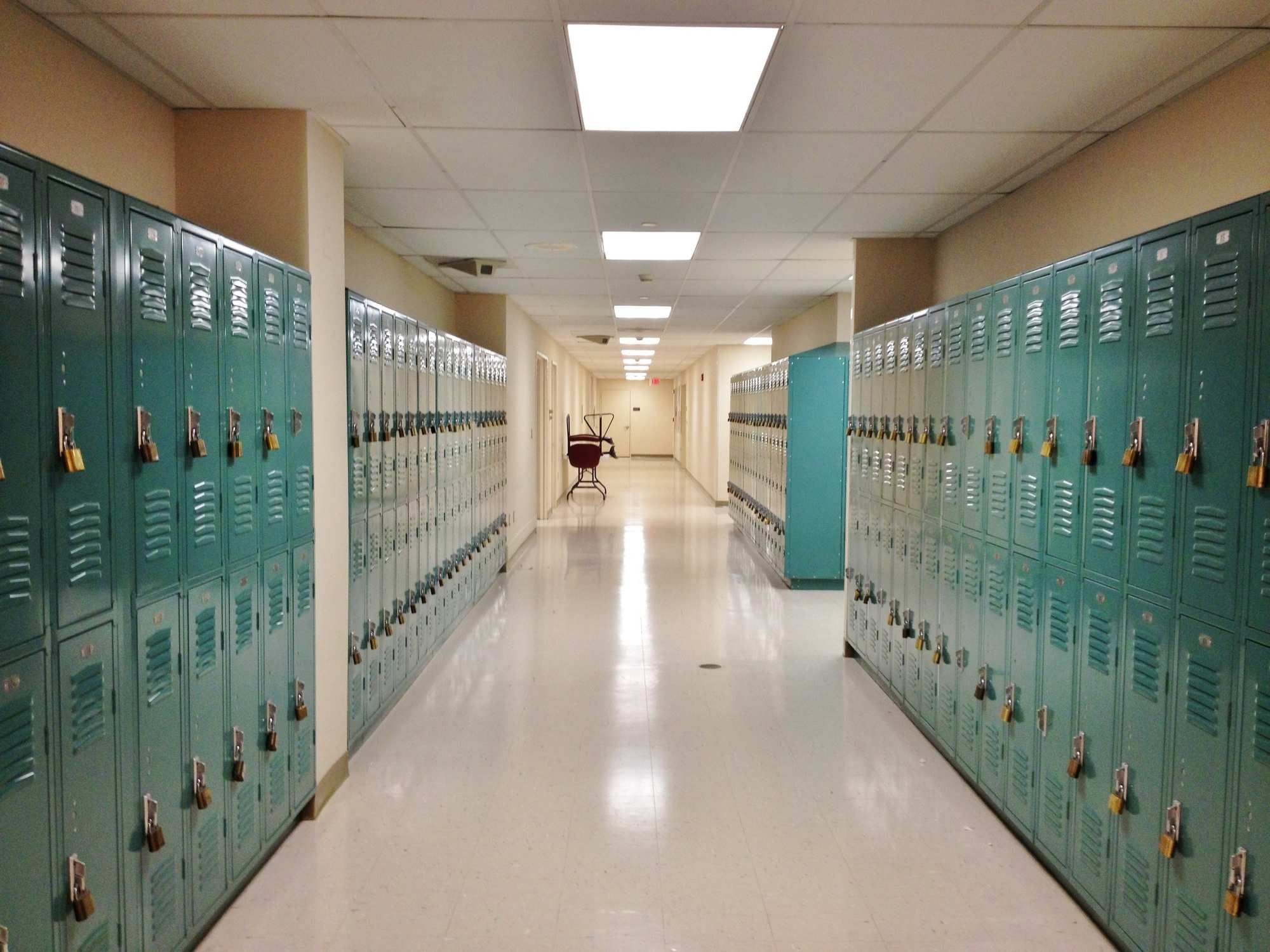
School staff and teachers have a responsibility to protect students from sexual abuse in school. While many incidents of sexual harassment at school are written off as “boys being boys,” or harmless teasing, sexual harassment and sexual assault in schools are tragically not uncommon, perpetrated by both fellow students and adults, and at both public and private institutions.
Sexual Assault Statistics
More than 5% of K–12 schools surveyed reported sexual assaults other than rapes during the 2017–2018 school year, according to a 2019 report from the National Center for Education Statistics. Researchers surveyed 2,762 schools for the report, which included approximately 7,100 incidents of sexual assault.
This represents an increase in the number of assaults reported in the 2016-2017 survey, which was approximately 6,100. However, it’s not known whether the number of sexual assaults in schools has increased, or if there is simply more awareness around inappropriate behavior or contact.
More than 11% of students are raped or otherwise sexually assaulted, according to the American Association of University Women (AAUW). Additionally, nearly half of all students experience sexual harassment. Sexual assaults and sexual harassment in school, or to school-age students, may result in negative mental health consequences, as well as detrimental effects on the student’s education.
Preventing Sexual Assault: School Staff Responsibilities
Teachers and school staff have a responsibility to protect the students in their care, as well as to provide them with a safe learning environment. Taking allegations of sexual abuse, assault, or harassment seriously is one of the first steps toward fulfilling these obligations and preventing sexual assault. Sexual harassment may begin in the elementary school years.
What starts as teasing or bullying may lead to harassment or assault. Teachers and staff may be able to protect students by responding appropriately when they witness incidents of harassment or assault or are informed of these incidents by students.
Sexual harassment and assault in schools may be perpetrated by faculty, staff, or fellow students. Additionally, many students have filed claims against workers or volunteers affiliated with after-school programming, youth athletic organizations, the Boy Scouts of America, and other youth organizations.
In order to prevent potential predators from gaining access to students, school and organization administrators can perform background checks on potential hires or volunteers. By running background checks on all employees or volunteers who work with children, schools may be able to better protect their students.
Preventing sexual assault may also be accomplished by training staff and faculty on consent, and by emphasizing the importance of consent in health or sexual education classes for students.
Very few allegations of child sexual abuse are false, but many adults do not believe children when they disclose child abuse in school. In fact, one in three adults would not believe a child if they disclosed sexual abuse, according to a study from the Australian Childhood Foundation, as reported by HuffPost. And there are many children who, for fear of their abuser, fear of not being believed, or other reasons, do not come forward about their abuse.
However, only 20% of female students who experience sexual assault report these incidents to authorities, per the AAUW. It is essential that teachers and staff make it clear to students that they are a safe option to report abuse and will believe them and keep them safe.
It is not just important for adults to keep an eye out for signs of abuse and grooming behaviors to prevent abuse. In order to report sexual assault and abuse that trusted adults don’t notice, children must first be able to recognize when things that people are saying or doing to them are not okay and must be empowered to take steps to protect themselves, per the Rape, Abuse & Incest National Network (RAINN), the largest anti–sexual violence organization in the country.
There are age-appropriate ways to teach children about difficult topics — for instance, talking to them about boundaries and letting them know that no one, no matter who they are (teacher, coach, uncle, friend) has the right to touch them in a way that makes them uncomfortable. This is also a good moment to emphasize that they do not have the right to touch other people who don’t want to be touched.
Teaching children how to talk about their bodies is also essential, giving them the names for body parts so that they are better able to talk about them without shame or confusion.
Equally important is adult availability. Children must know that their trusted adults are available and open to talk if something like this is going on. Openness is very important — for both adults and children. Children should be informed that even if an adult has asked them to keep a secret, it’s okay to tell another trusted adult about it. Perpetrators will often use secret-keeping to prevent children from coming forward, RAINN notes.
Providing Resources For Sexual Assault Victims
In addition to taking student allegations seriously and performing background checks on employees, schools also have a responsibility to provide resources for students who have been subjected to sexual assault and harassment.

By providing school staff and faculty with sexual assault and consent training, schools may be able to handle these cases with sensitivity. There are also serious consequences for improperly dealing with sexual assault in schools. Some students have sued schools and school districts over mishandled sexual abuse cases.
What Laws Are in Place to Protect Students?
News of sexual assault in schools has been on the rise in recent years, as the #MeToo movement has inspired people to share their stories. This movement has also led lawmakers, experts, and the general public to take a more critical look at the role institutions like schools play in enabling or preventing sexual assault and harassment.
Laws are in place to safeguard students from sexual assault and harassment in schools. Title IX of the Education Amendments Act of 1972 prohibits discrimination in school programs, educational programs, and colleges that receive federal funding, EqualRights.org explains. Sexual harassment and assault are considered to be forms of gender discrimination, according to EqualRights.org.
Title IX gives students an avenue through which they can report sexual harassment and assault. They can file a Title IX complaint and request that the school take action to prevent the harassment or assaults.
To ensure that students and staff are informed about Title IX’s requirements, and to help staff members protect students, the law requires schools to publish its sexual harassment and assault policies and make it available to all staff, faculty, and students. The school must also make known how it will respond to claims of sexual assault.
Staff members who wish to support a student being harassed or assaulted, or who are working toward preventing sexual assault, have support under the law, in that the school is not legally allowed to retaliate against a Title IX claim, and must take action to investigate it, rather than avoid it.
The Education Department under Betsy DeVos made adjustments to Title IX regulations that many victim advocates, lawmakers, and sexual assault survivors are concerned will prevent future victims from coming forward. The new regulations more narrowly define sexual misconduct on campuses as:
- School employee conditioning education benefits on participation in unwelcome sexual conduct
- Unwelcome conduct that a reasonable person would determine is so severe, pervasive and objectively offensive that it effectively denies a person equal access to the school’s education program or activity
- Sexual assault, dating violence, domestic violence, and stalking
School Sexual Assault Cases
Several students have opened investigations or sued schools or school districts after what they claim are mishandled cases of sexual harassment or assault. A student who spoke to The New York Times said she reported multiple incidents of assault and harassment by another student to her school district, but the district concluded that the girl could not be as distressed as she claimed because security camera footage showed her smiling a few minutes after seeing the student.
After multiple attempts to have the other student removed from the school, the victim finally transferred to a new school an hour away. In addition to the harassment and abuse she claims to have suffered, she said she also had her education disrupted.
Filing a School Sexual Assault Lawsuit
Sexual assault can take place anywhere, including in trusted organizations and institutions, and can be committed by anyone, including authority figures that children are supposed to be able to trust. A growing number of sexual assault survivors have begun filing lawsuits—not just against their abusers, but also the organizations, including schools, that failed to protect them from the abuse or even actively covered it up.
Filing a lawsuit cannot take away the pain and suffering caused by sexual assault, but it can help to provide some financial compensation for your suffering, as well as hold those responsible, for their actions and inactions.
If you or a loved one has been a victim of sexual assault at school, you may be eligible to hire an experienced attorney to review your case and determine whether you qualify to open an investigation or lawsuit into your school or school district — even if the abuse took place years or even decades ago. Many states, such as California and New York, have introduced new sexual abuse lawsuit rules extending the statute of limitations, and some have opened lookback windows allowing survivors to pursue litigation after their claims would normally have expired. Some of these lookback windows have already ended, but others will remain open for some time.
Filing a lawsuit can be a daunting prospect, especially over something as serious as sexual abuse, so Top Class Actions has laid the groundwork by connecting you with an experienced attorney. Consulting an attorney can help you determine if you have a claim, navigate the complexities of litigation, and maximize your potential compensation.
This article is not legal advice. It is presented
for informational purposes only.
ATTORNEY ADVERTISING
Top Class Actions is a Proud Member of the American Bar Association
LEGAL INFORMATION IS NOT LEGAL ADVICE
Top Class Actions Legal Statement
©2008 – 2026 Top Class Actions® LLC
Various Trademarks held by their respective owners
This website is not intended for viewing or usage by European Union citizens.
E-mail any problems with this form to:
[email protected].
Oops! We could not locate your form.












